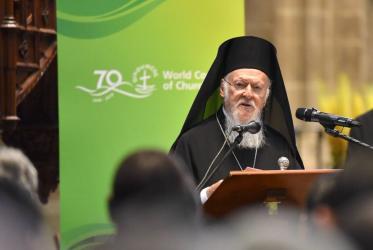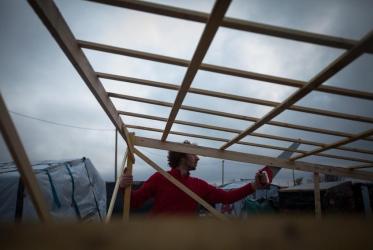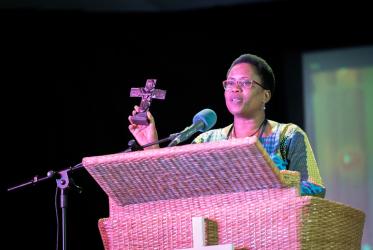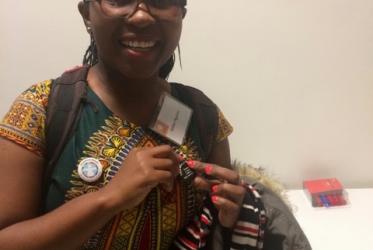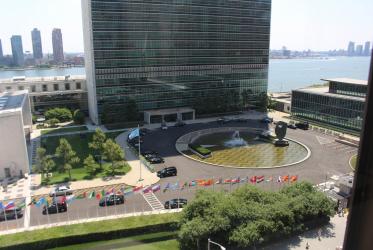Displaying 261 - 280 of 442
18 - 20 September 2018
Ergife Palace Hotel, via Aurelia 619, Rome, Italy
Marginalized are at centre of papal gifts exchange
22 June 2018
WCC reiterates calls for immediate ceasefire in Syria
16 April 2018
Unifying faiths in peace and harmony through dialogue
10 April 2018
WCC decries violence on Israel-Palestinian border
31 March 2018
“Sending service” closes Arusha conference
13 March 2018
WCC calls for immediate end to siege and civilian attacks in Syria
26 February 2018
Tveit speaks on Partnership to End Violence Against Children
15 February 2018
Religious organizations speak up on refugee crisis at UN event
29 January 2018
Tveit: Beyond national borders, we are one humanity
23 January 2018
WCC to co-host public event on migration and displacement at UN
17 January 2018

